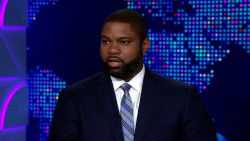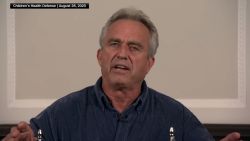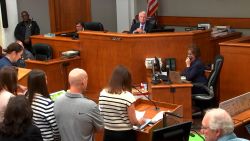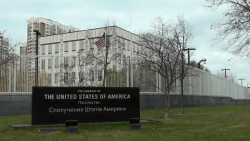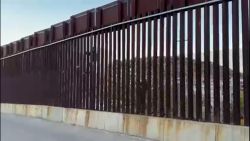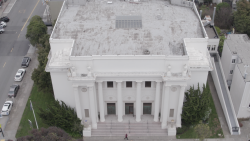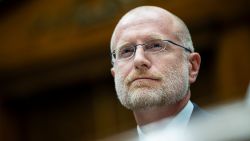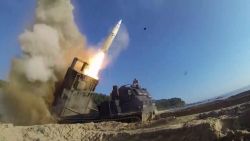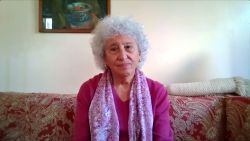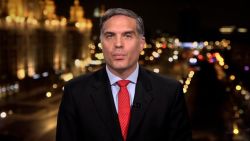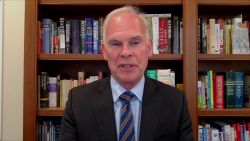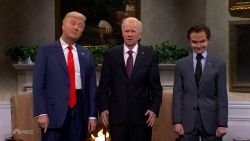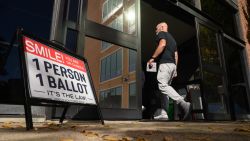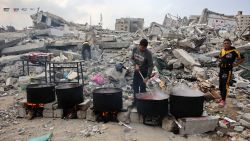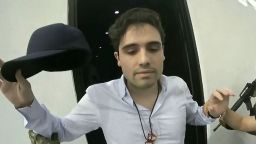The arrest of two leaders of the Sinaloa cartel in the United States on Thursday was organized by one of the two men arrested, Joaquin Guzman Lopez, the son of infamous cartel boss Joaquin “El Chapo” Guzman.
Guzman Lopez organized his arrest along with that of Ismael “El Mayo” Zambada, 76, who co-founded the cartel with El Chapo, by luring Zambada on a flight to examine a piece of land he thought was in Mexico, an official familiar with the operation told CNN.
Instead, the plane landed in El Paso, Texas, where federal agents, including from Homeland Security Investigations, arrested the two cartel bosses.
Zambada didn’t know US investigators had exploited a rift in the cartel and Guzman Lopez was helping with Zambada’s capture, the official said. FBI agents arrested both men, in one of the biggest victories for US law enforcement against the cartels.
The cartel, one of the world’s most powerful narcotics trafficking organizations, is thought to be responsible for the trafficking of vast amounts of cocaine, heroin, methamphetamine and fentanyl into the US. DEA Administrator Anne Milgram said the arrests strike “at the heart of the cartel that is responsible for the majority of drugs, including fentanyl and methamphetamine, killing Americans from coast to coast.”
Experts have told CNN a power struggle between Zambada and El Chapo’s sons, also known as the Chapitos, has existed for some time in the cartel. With Zambada gone, violence inside the cartel and other criminal organizations in Mexico, is set to ramp up.
The agents from HSI, who have been working the case since earlier this year when Attorney General Merrick Garland announced charges against El Chapo’s three sons, were skeptical when Guzman Lopez first made the offer.
The entire operation, a source told CNN, went off surprisingly smoothly given the gravity of the arrests and the disruption it could cause to Mexican drug trafficking.
Zambada entered a not-guilty plea to all charges at his first federal court appearance Friday morning in El Paso and is being held without bond on seven federal criminal counts, including continuing criminal enterprise and money laundering.
He also agreed to waive his right to personally appear and to ask for bond at a hearing set for July 31.
Guzman Lopez, 38, was flown from El Paso via an FBI jet used for extradition operations and arrived near Chicago early Friday, a law enforcement source familiar with the investigation said. He is currently being held in a Chicago federal prison, according to the Federal Bureau of Prisons’ inmate locator, and he’s scheduled to make his first court appearance Tuesday morning, his attorney Jeffrey Lichtman told CNN in an email Saturday. His father is serving a life sentence in a US prison after he was convicted five years ago on multiple charges.
Both Zambada and Guzman Lopez face several charges in the US for allegedly leading the cartel’s criminal operations, including its “deadly fentanyl manufacturing and trafficking networks,” US Attorney General Merrick Garland said in a statement after the arrests.
Zambada’s attorney told the Los Angeles Times his client did not voluntarily surrender to law enforcement. He told the paper Zambada “was brought against his will.”

Mexican President Andres Manuel Lopez Obrador on Friday said the US government “must give a full report” on the operation that led to the arrests.
“There has to be transparency,” he said during his daily news conference.
AMLO, as the president is known, said the arrests show “important progress in the battle against drug trafficking.” He added, however, the arrests are not “everything,” adding the US must do more “in solving the drug consumption problem by addressing the causes.”
Mexican officials were informed of the arrests during a phone call from the US Embassy in Mexico Thursday afternoon, Mexico’s secretary of security, Rosa Icela Rodriguez, said Friday.
“The Mexican government did not participate in this detention or surrender,” Rodriguez said during AMLO’s daily news conference, adding Mexico is waiting for more information from the US government.
FBI Director Christopher Wray said Zambada and Guzman Lopez had “eluded law enforcement for decades” and “will now face justice in the United States.”
US authorities had sought Zambada’s capture for years and in 2021 raised the reward for information leading to his arrest to $15 million. He was indicted by a northern Illinois grand jury in 2009, according to the US State Department, and faces various criminal charges.
“Ismael Mario Zambada Garcia is the long-time leader of the Zambada Garcia faction of the Sinaloa Cartel. Zambada Garcia is unique in that he has spent his entire adult life as a major international drug trafficker, yet he has never spent a day in jail,” according to the US State Department.
Similarly, Guzman Lopez was previously indicted by a federal grand jury in Illinois on narcotics, money laundering and firearms charges, according to a statement last year from prosecutors.
Powerful cartel
The Sinaloa Cartel, named after the Mexican state where the gang was formed in the late 1980s, is one of the most powerful criminal groups in the world, raking in billions of dollars annually by trafficking drugs into the US and around the globe.
Notorious cartel boss Guzman, better known as “El Chapo,” was arrested in Guatemala in 1993 on homicide and drug charges and extradited to Mexico. But he escaped Mexican prison in 2001, reportedly by bribing prison guards to smuggle him out in a laundry truck. He was arrested again in 2014, but escaped again, this time through a tunnel.
Guzman was arrested for a third time in 2016 and then extradited to the United States.
In a major trial, he was convicted by a federal jury in Brooklyn in 2018 and sentenced to life in prison plus 30 years, according to the Justice Department.
Guzman was found guilty on 10 federal criminal counts, which included engaging in a continuing criminal enterprise, conspiracy to launder narcotics proceeds, international distribution of cocaine, heroin, and marijuana, and use of firearms.
During the trial, Guzman’s lawyers argued Zambada was the real kingpin of the cartel who bribed the Mexican government to frame Guzman and remain free to run the criminal organization.
In the latest in a string of US indictments against him, Zambada was charged in February with conspiring to manufacture and distribute fentanyl, an extremely potent synthetic opioid that has killed tens of thousands of Americans in an epidemic of overdoses.
Fentanyl “was largely unheard of when [Zambada] founded the Sinaloa Cartel more than three decades ago and today is responsible for immeasurable harm,” said Breon Peace, US Attorney for the Eastern District of New York, in the indictment.
Since 1989, Zambada has imported and distributed “massive amounts of narcotics,” generating billions of dollars in profits, according to the indictment.
Federal prosecutors said he employed people to obtain “transportation routes and warehouses” to import and store narcotics, along with hit men, or sicarios, to carry out kidnappings and murders in Mexico “to retaliate against rivals who threatened the cartel.”
Zambada’s son, Vicente Zambada Niebla, admitted during testimony at Guzman’s 2018 trial to passing along orders for murders and kidnappings and was sentenced to 15 years in 2019 by a federal judge in Chicago.
He began cooperating with the US government in 2011, prosecutors said in a May 2019 filing. They said he aided authorities in helping target members of the Sinaloa Cartel and a rival gang, which lead to the “charging of dozens of high-level targets and hundreds of their associates in indictments throughout the country,” CNN previously reported.
The younger Zambada had known “El Chapo” since he was 15 years old, he testified at the kingpin’s trial in 2018. The younger Zambada frequently referred to “El Chapo” as “mi compadre,” or “my buddy,” during his testimony and said the drug lord was godfather to his youngest son.
A history of violence
“El Mayo” Zambada was also indicted by a US federal grand jury in April 2012, in Texas, along with other suspected top Sinaloa leaders and 22 people allegedly connected with the cartel, including Guzman. They were charged with murder and conspiracy connected with drug trafficking, money laundering and organized crime.
At that point, Guzman and Zambada had already been indicted on drug trafficking and organized crime charges in several US federal courts.
The 2012 indictment in western Texas detailed two acts of violence federal prosecutors said were committed by members of the cartel; one took place during a 2010 wedding ceremony in Ciudad Juarez, when an American citizen and two members of his family were kidnapped because of their ties with the rival Juarez cartel.
The target was the groom and a resident of Columbus, New Mexico, whose body was found to be beaten, strangled and whose hands had been “severed above the wrists and placed on his chest,” according to the indictment.
Police found the bodies of the groom, his brother and his uncle three days after the wedding in the bed of a pickup truck, the indictment stated.
Another incident detailed in the indictment related to the kidnapping, killing and mutilation of a Texas resident in 2009 “to answer for the loss of a 670-pound load of marijuana seized by the Border Patrol,” prosecutors said.
CNN’s requests for comment were not immediately returned Friday by Zambada’s attorney, Frank Perez. CNN has reached out to law enforcement for comment.
This story has been updated with additional developments. CNN’s Abel Alvarado, Kathleen Magramo, Fidel Gutierrez, Sahar Akbarzai, Evan Perez, Josh Campbell, Mark Morales, Hannah Rabinowitz, Andy Rose and Zoe Sottile contributed to this report.







